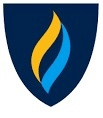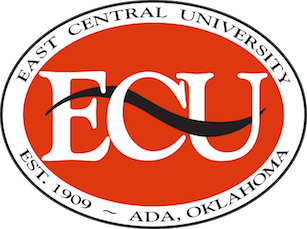Online human services degree programs equip students with the skills and knowledge needed to support individuals and communities through various challenges. These programs cover a broad range of topics, including psychology, social work, public health, and community services. Whether you’re looking to start a new career or advance in your current role, an online human services degree can open doors to diverse opportunities in the field.
 Southern New Hampshire University (SNHU) : BA in Human Services (Flexible. Affordable. And achievable.)
Southern New Hampshire University (SNHU) : BA in Human Services (Flexible. Affordable. And achievable.) East Central University : Online BA in Human Services Counseling (2 concentrations available)
East Central University : Online BA in Human Services Counseling (2 concentrations available)Understanding Human Services Programs
A human services degree is designed to prepare students for careers focused on improving the overall quality of life for individuals and communities. This field encompasses a broad range of services aimed at helping people meet their basic needs, such as mental health counseling, social work, community outreach, and crisis intervention. Human services professionals work in various settings, including non-profit organizations, government agencies, healthcare facilities, and educational institutions.
Variations in Human Services Programs
Human services degree programs can vary significantly in terms of focus and specialization. Here are some common variations:
Degree Levels
- Associate Degree: An associate degree in human services typically takes about two years to complete and provides a foundational understanding of the field. It prepares students for entry-level positions or further education.
- Bachelor’s Degree: A bachelor’s degree in human services generally takes four years to complete and offers a more comprehensive education, including advanced coursework and practical experiences. Graduates are prepared for a wider range of job opportunities and roles.
- Master’s Degree: A master’s degree in human services provides advanced knowledge and skills, often allowing for specialization in areas such as clinical counseling, social work, or non-profit management. This degree can lead to higher-level positions and increased earning potential.
Specializations
- Gerontology: Focuses on the needs and challenges of the aging population, including healthcare, social support, and policy advocacy.
- Addiction Studies: Prepares students to work with individuals struggling with substance abuse, providing counseling, prevention, and intervention services.
- Community Services: Emphasizes community development, outreach, and support services aimed at improving community well-being and addressing social issues.
- Child and Family Services: Focuses on supporting children and families through social services, advocacy, and counseling.
Differences Between Human Services and Related Fields
While human services programs share similarities with fields such as social work and counseling, there are distinct differences:
- Human Services vs. Social Work: Social work programs are often more focused on individual case management and clinical practice, while human services programs have a broader emphasis on community and systemic support.
- Human Services vs. Counseling: Counseling programs primarily prepare students for therapeutic roles, focusing on mental health and personal development. Human services programs encompass a wider range of services and support, including advocacy, resource coordination, and community outreach.
By understanding the scope and variations within human services degree programs, prospective students can better identify the educational path that aligns with their career aspirations and interests. Like other counseling degree programs, these programs offer diverse opportunities to make a meaningful impact on individuals and communities, addressing a wide array of social and personal challenges.
Consider a Featured Online Counseling Program
| School and Program Information | Online Program? Entry Requirements | Course Information | |
|---|---|---|---|
|
Southern New Hampshire University (SNHU)
BA in Human Services
NECHE Accredited
|
✔ Online
No application fee or GRE/GMAT scores required
|
Choose the general track or enhance your degree with one of 3 concentrations: child and family services, gerontology and substance abuse.
|
Learn More |
|
East Central University
Online BA in Human Services Counseling
Accredited
|
✔ Online
|
Concentrations in Counseling and Rehabilitation. CACREP-accredited.
|
Learn More |
*Sponsored Counseling Programs
For detailed degree information, view the guides to:
Online CACREP Accredited programs | Online MPCAC Accredited programs
Curriculum Overview
Undergraduate Programs
Undergraduate programs in human services, including associate and bachelor’s degrees, provide a foundational education in the field. These programs aim to develop students’ understanding of human behavior, social issues, and community resources. They combine theoretical knowledge with practical skills to prepare graduates for entry-level positions in various human services settings.
Core Courses Typically Included in an Associate or Bachelor’s Degree
- Introduction to Human Services: This course provides an overview of the human services field, including its history, scope, and the various roles of human services professionals.
- Psychology: Courses in psychology cover the fundamentals of human behavior and mental processes, essential for understanding clients’ needs and behaviors.
- Sociology: Sociology courses explore social structures, cultural norms, and societal issues that impact individuals and communities.
- Case Management: This course teaches students how to assess clients’ needs, develop care plans, and coordinate services to support clients effectively.
- Crisis Intervention: Students learn techniques for helping individuals and families in crisis, including communication skills and emergency response strategies.
- Ethics and Professionalism: This course covers the ethical standards and professional practices required in human services work, including confidentiality, boundaries, and advocacy.
- Internships and Fieldwork: Practical experience is a crucial component of undergraduate programs. Internships and fieldwork placements allow students to apply their knowledge in real-world settings under the supervision of experienced professionals.
Graduate Programs
Graduate programs in human services, typically at the master’s level, offer advanced education and specialization opportunities. These programs build on the foundational knowledge gained in undergraduate studies and focus on developing leadership, research, and advanced practice skills.
Advanced Courses and Specializations in a Master’s Degree
- Advanced Counseling Techniques: This course provides in-depth training in various counseling methods and therapeutic interventions used in human services practice.
- Human Services Administration: Students learn about organizational management, program development, and leadership skills necessary for administrative roles in human services organizations.
- Research Methods in Human Services: This course covers qualitative and quantitative research methods, preparing students to conduct research and evaluate programs effectively.
- Policy Analysis and Advocacy: Students explore the impact of public policies on human services and learn strategies for advocating for policy changes that benefit clients and communities.
- Clinical Practicum and Supervised Practice: Graduate programs often include a clinical practicum component, where students gain hands-on experience in specialized areas of human services under the supervision of licensed professionals.
By understanding the typical curriculum for both undergraduate and graduate human services programs, prospective students can better anticipate the coursework and training they will receive. These programs are designed to equip students with the essential knowledge and practical skills needed to succeed in various human services and counseling careers, from direct client support to administrative and leadership roles.
 Southern New Hampshire University (SNHU) - BA in Human Services (NECHE Accredited)
Southern New Hampshire University (SNHU) - BA in Human Services (NECHE Accredited)
 East Central University - Online BA in Human Services Counseling (HLC Accredited)
East Central University - Online BA in Human Services Counseling (HLC Accredited)
Importance of Accreditation
Accreditation Bodies
Accreditation is a crucial aspect of any educational program, ensuring that the institution meets certain standards of quality and rigor. For online human services degree programs, accreditation provides assurance that the education you receive will be recognized by employers and professional organizations, and that it meets the necessary standards for licensing and certification.
Key Accrediting Bodies for Human Services Programs
- Council for Standards in Human Service Education (CSHSE)
- The CSHSE accredits human services programs at various academic levels, ensuring that they meet high standards in curriculum, faculty qualifications, and student support. Programs accredited by CSHSE are recognized for their commitment to preparing competent human services professionals.
- Regional Accrediting Bodies
- It’s important for institutions to be regionally accredited by bodies such as the Higher Learning Commission (HLC) or the Middle States Commission on Higher Education (MSCHE). Regional accreditation guarantees that the institution as a whole meets high standards of quality and accountability.
Benefits of Accreditation
Ensuring Quality Education
Accredited programs are regularly reviewed and updated to reflect the latest advancements and best practices in the field. This ensures that students receive an education that is both current and comprehensive, covering essential topics and skills needed for effective practice in human services.
Meeting Professional and Licensure Requirements
Many states and professional organizations require graduates to have completed an accredited program to be eligible for licensure or certification. Accreditation by recognized bodies is often a prerequisite for taking licensing exams and obtaining professional credentials.
Enhancing Employment Opportunities
Employers prefer candidates who have graduated from accredited programs, as it assures them that the individual has received a rigorous and high-quality education. Accredited programs are also recognized for their quality by professional associations, enhancing graduates’ employment prospects and career advancement opportunities.
Facilitating Transfer and Further Education
Credits earned from accredited programs are more likely to be accepted by other institutions, facilitating transfer if students decide to pursue further education. Accreditation also ensures that graduates meet the prerequisites for advanced degrees and specialized certifications in the field.
By choosing an accredited online human services degree program, prospective students can be confident that they are receiving a high-quality education that meets professional standards and prepares them for successful careers in human services.
Top Online Human Services Degree Programs for 2024-2025
Highlighting Specific Programs
Choosing the right online human services degree program is a critical step towards a rewarding career in the field. Below, we highlight several top-rated programs that offer comprehensive human services curricula, as well as the flexibility of online learning.
Antioch UniversityLocation: Yellow Springs, Ohio
Type: Private
Degree program: Master of Human Services Administration
Bellevue UniversityLocation: Bellevue, Nebraska
Type: Private
Degree program: Master’s in Human Services
California Baptist UniversityLocation: Riverside, California
Type: Private
Degree program: Bachelor of Arts in Human Services
Dominican UniversityLocation: River Forest, Illinois
Type: Private
Degree program: Human Services – B.P.S.
Elizabethtown College
Location: Elizabethtown, Pennsylvania
Type: Private
Degree program: Online Bachelor of Science in Human Services
Grace College and Theological SeminaryLocation: Winona Lake, Indiana
Type: Private
Degree program: Bachelor of Human Services
LeTourneau UniversityLocation: Longview, Texas
Type: Private
Degree program: Bachelor of Human Services
Liberty UniversityLocation: Lynchburg, Virginia
Type: Private
Degree program: Online Bachelor’s Degree in Human Services
Mercer University
Location: Macon, Georgia
Type: Private
Degree program: Bachelor of Science in Human Services
Ohio UniversityLocation: Athens, Ohio
Type: Public
Degree program: Bachelor of Applied Human and Consumer Sciences in Human Services
Spring Arbor UniversityLocation: Spring Arbor, Michigan
Type: Private
Degree program: Online BS in Human Services
St. Joseph’s University
Location: Brooklyn, New York
Type: Private
Degree Program: B.S. in Human Services, M.S. in Human Services Leadership
University of Arizona
Location: Tucson, Arizona
Type: Public
Degree program: Bachelor of Applied Science, Human Services
Western Washington UniversityLocation: Bellingham, Washington
Type: Public
Degree program: Human Services, BA
Tips for Assessing Needs and Finding a Program
When selecting an online human services degree program, consider the following factors to ensure the program aligns with your needs and career goals:
Accreditation
Ensure the program is accredited by recognized accrediting bodies, such as the Council for Standards in Human Service Education (CSHSE) or regional accrediting organizations. Accreditation ensures the program meets high standards of quality and is recognized by employers and professional organizations.
Program Flexibility
Look for programs that offer flexible scheduling options, such as asynchronous courses, part-time enrollment, and accelerated tracks. This flexibility is especially important for working professionals or those with family commitments.
Practical Experience
Consider programs that include practical components such as internships, fieldwork, or virtual simulations. These experiences provide hands-on training and help you apply theoretical knowledge in real-world settings.
Support Services
Evaluate the support services offered by the institution, including academic advising, career counseling, and technical support. Strong support services can enhance your learning experience and help you achieve your educational and career goals.
Specializations
If you have a specific area of interest within human services, look for programs that offer relevant specializations or elective courses. Specializations can provide deeper knowledge and skills in areas such as addiction studies, gerontology, or community services.
Cost and Financial Aid
Compare tuition costs and available financial aid options. Some programs may offer scholarships, grants, or employer tuition reimbursement programs that can help offset the cost of your education.
By thoroughly researching and considering these factors, you can find an online human services degree program that best meets your needs and sets you on the path to a successful career in the field.
Career Opportunities in Human Services
Graduates with an online human services degree can pursue a variety of rewarding careers. These roles often involve working directly with individuals and communities to provide support, advocacy, and intervention services. Here are some common job titles for human services degree holders:
Social and Community Service Managers
- Role: Oversee social service programs and manage staff who provide social services to the community. They work in settings such as non-profit organizations, government agencies, and social service offices.
- Responsibilities: Planning and coordinating programs, managing budgets, supervising staff, and evaluating the effectiveness of services provided.
Case Managers
- Role: Work with clients to assess their needs and connect them with resources and services to improve their quality of life. They often work in healthcare, social services, and mental health agencies.
- Responsibilities: Conducting client assessments, developing care plans, coordinating services, and monitoring client progress.
Substance Abuse Counselors
- Role: Provide support and treatment to individuals struggling with substance abuse and addiction. They work in rehabilitation centers, hospitals, and community health organizations.
- Responsibilities: Conducting individual and group therapy sessions, developing treatment plans, and providing crisis intervention.
Child Welfare Workers
- Role: Advocate for the safety and well-being of children and work to prevent and address child abuse and neglect. They are employed by government agencies, non-profits, and social service organizations.
- Responsibilities: Investigating reports of child abuse, developing safety plans, coordinating with other agencies, and providing support to families.
Mental Health Counselors
- Role: Provide therapeutic services to individuals, families, and groups dealing with mental health issues. They work in private practices, mental health clinics, and hospitals.
- Responsibilities: Conducting therapy sessions, developing treatment plans, and assessing client needs.
Work Settings
Human services professionals can work in a variety of settings, each offering unique opportunities to make a difference in the lives of others:
Non-Profit Organizations
- Focus: Provide a range of social services and support to vulnerable populations.
- Roles: Social service manager, case manager, program coordinator.
Government Agencies
- Focus: Implement and oversee public programs and services to support community well-being.
- Roles: Child welfare worker, social service coordinator, public health advisor.
Healthcare Facilities
- Focus: Address the physical, mental, and social needs of patients.
- Roles: Substance abuse counselor, mental health counselor, case manager.
Educational Institutions
- Focus: Support the academic and social development of students.
- Roles: School counselor, student support specialist, education program coordinator.
By pursuing a career in human services, graduates can work in various settings where they can provide essential services and support to individuals and communities. The field offers diverse opportunities to make a meaningful impact on society, addressing critical social issues and improving the quality of life for many.
Job Outlook and Salary Information
Employment Projections
The demand for human services professionals is expected to grow significantly over the next decade, driven by the increasing need for social services and support across various populations. According to the U.S. Bureau of Labor Statistics (BLS), employment in community and social service occupations is projected to grow faster than the average for all occupations. This growth is attributed to the aging population, increased awareness of mental health issues, and the expansion of healthcare and social services.
Specific Job Outlooks
- Community Health Workers:: Projected to grow 14% from 2022 to 2032, driven by the need for social services and community outreach programs.
- Substance Abuse, Behavioral Disorder, and Mental Health Counselors: Expected to see a 18% growth due to the rising demand for mental health and addiction services.
- Social Workers: Projected to grow 7%, with healthcare social workers seeing an 10% increase, reflecting the broader demand for health and social services.
Salary Expectations
Salaries for human services professionals vary based on factors such as job role, geographic location, level of education, and years of experience. The median annual wage for community and social service occupations was $52,000 in May 2023, according to the BLS. Below are median annual wage figures for various positions within the human services field, according to the BLS as of May 2023:
Median Salaries by Role
- Social and Community Service Managers: $77,030
- Substance Abuse, Behavioral Disorder, and Mental Health Counselors: $53,710
- Social Workers: $58,380
Factors Influencing Salary
Education and Experience
- Higher Education: Advanced degrees (such as a master’s in human services or a related field) typically lead to higher salaries and more advanced positions.
- Experience: Professionals with more years of experience in the field generally earn higher wages due to their expertise and skills.
Geographic Location
- Urban vs. Rural: Salaries tend to be higher in urban areas compared to rural regions, reflecting the higher cost of living and demand for services in cities.
- Regional Variations: Certain states and regions offer higher wages for human services professionals, often due to state-specific funding and program availability.
Work Setting
- Non-Profit Organizations: May offer lower salaries compared to government or healthcare settings, but often provide other benefits such as flexible schedules and meaningful work.
- Government Agencies: Typically offer competitive salaries, comprehensive benefits, and job stability.
- Healthcare Facilities: Often provide higher wages, especially for roles that require specialized skills and certifications.
Enhancing Career Prospects and Salary Potential
- Continuing Education: Pursuing additional certifications and specialized training can enhance career prospects and salary potential.
- Networking: Building a professional network through conferences, professional organizations, and continuing education opportunities can lead to job advancements and higher salaries.
- Specialization: Focusing on high-demand areas such as mental health, addiction services, or gerontology can increase job opportunities and earning potential.
By understanding the job outlook and salary expectations for human services professionals, prospective students can make informed decisions about their educational and career paths. The field offers diverse opportunities with competitive salaries and the chance to make a significant impact on individuals and communities.
Frequently Asked Questions
What Can I Do with a Degree in Human Services?
A degree in human services prepares graduates for a variety of roles that involve helping individuals, families, and communities overcome challenges and improve their quality of life. Common career paths include:
- Case Manager: Assess clients’ needs, develop care plans, and coordinate services.
- Social and Community Service Manager: Oversee social service programs and manage staff.
- Substance Abuse Counselor: Provide counseling and support to individuals struggling with addiction.
- Mental Health Counselor: Offer therapy and support to individuals with mental health issues.
- Child Welfare Worker: Advocate for the safety and well-being of children and families.
How Long Does It Take to Complete an Online Human Services Degree?
The time it takes to complete an online human services degree varies depending on the level of the degree and the student’s pace:
- Associate Degree: Typically takes about 2 years to complete.
- Bachelor’s Degree: Generally takes about 4 years to complete.
- Master’s Degree: Usually takes about 2 years of full-time study after completing a bachelor’s degree. Some programs offer accelerated tracks or part-time options, which can alter the typical completion time.
Are There Any Prerequisites for Enrolling in an Online Human Services Program?
Prerequisites for enrolling in an online human services program vary by institution and degree level:
- Associate Degree: Generally require a high school diploma or GED.
- Bachelor’s Degree: Often require completion of general education courses and may have specific course prerequisites.
- Master’s Degree: Typically require a bachelor’s degree in a related field, and some programs may require relevant work experience or prerequisite coursework in human services or social sciences.
What Kind of Accreditation Should I Look for in a Human Services Program?
When selecting a human services program, look for accreditation from recognized accrediting bodies such as:
- Council for Standards in Human Service Education (CSHSE): Ensures the program meets high standards in curriculum and faculty qualifications.
- Regional Accreditation: Bodies such as the Higher Learning Commission (HLC) or Middle States Commission on Higher Education (MSCHE) ensure the institution as a whole meets quality standards. Accreditation ensures the program is recognized by employers and professional organizations and meets the standards necessary for licensure and certification.
Are There Online Programs Available for Human Services Degrees?
Yes, many accredited institutions offer online human services degree programs. These programs provide flexibility for students to complete coursework remotely while balancing other commitments. Accredited online programs ensure the same quality of education and recognition as traditional on-campus programs.
By understanding these frequently asked questions, prospective students can gain valuable insights into the field of human services, the educational requirements, and the career opportunities available. This information helps in making informed decisions about pursuing an online human services degree and planning for a successful career in this rewarding field.
Final Thoughts
Choosing to pursue an online human services degree is a significant step toward a rewarding career dedicated to helping others and improving community well-being. This field offers diverse opportunities, allowing you to work in various settings and specialize in areas that align with your interests and career goals. Whether you aim to become a case manager, substance abuse counselor, social service manager, or another type of human services professional, an accredited online program can provide the education and flexibility you need to succeed.

